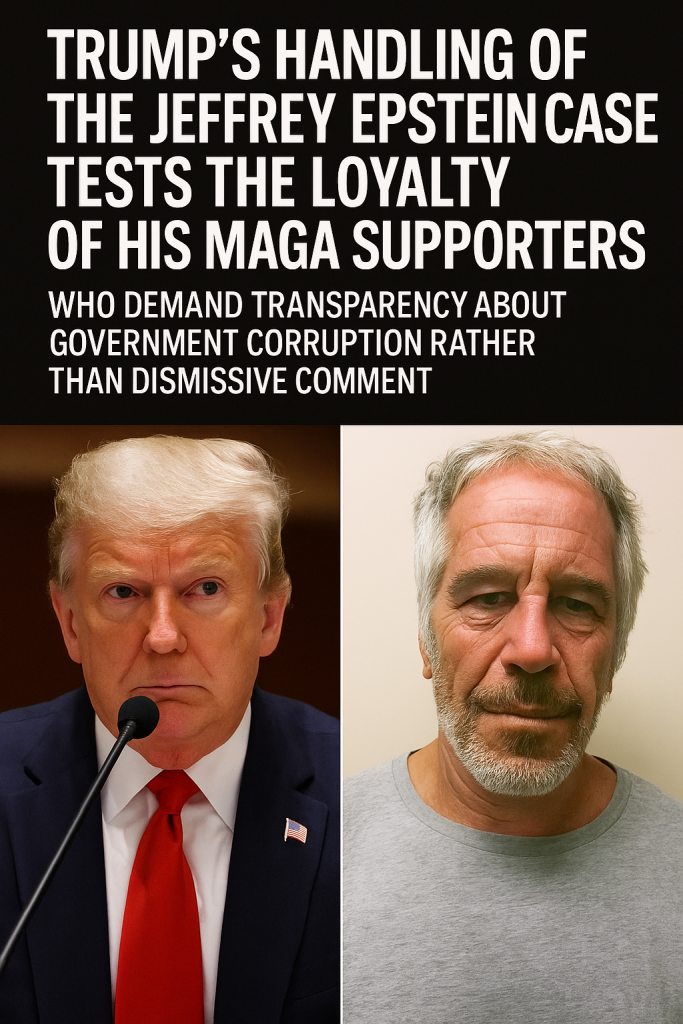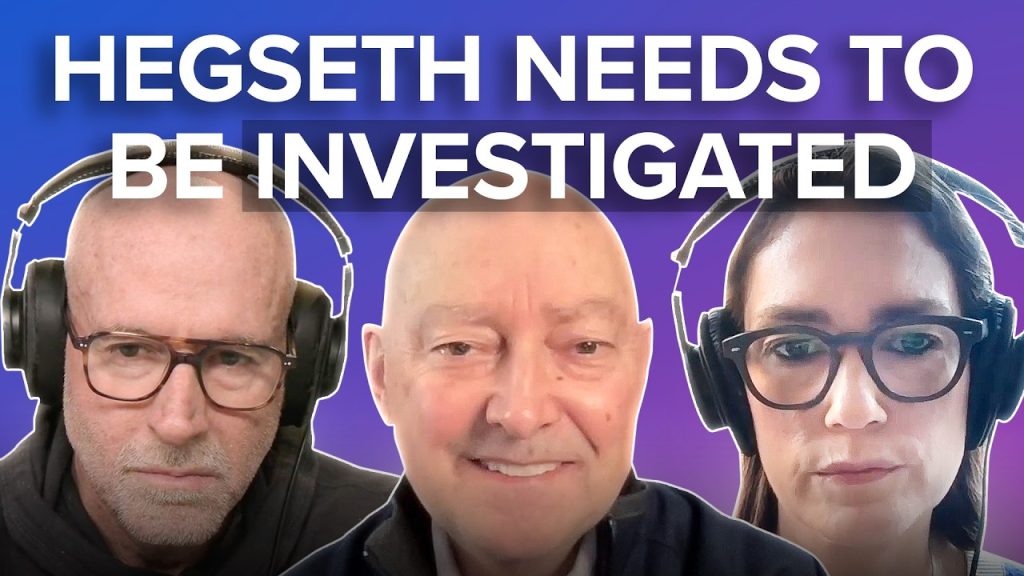In the turbulent political landscape ahead of the 2024 election, former President Donald Trump’s recent handling of the Jeffrey Epstein case has stirred an unexpected rift within his core base of MAGA supporters. While Trump’s dismissive remarks regarding the Epstein controversy initially seemed aimed at downplaying the issue, they have instead ignited a wave of demands from his supporters for greater transparency concerning corruption in government—highlighting a growing desire for accountability over partisan loyalty.
Jeffrey Epstein, the disgraced financier whose criminal activities and high-profile connections have long fueled speculation and conspiracy theories, remains a sensitive and deeply polarizing subject. Despite Epstein’s death in 2019, investigations and public interest persist, focused on the broader implications of corruption and abuse of power among elites. Trump, who once associated with Epstein, has consistently distanced himself from the controversy but recently faced renewed scrutiny as his comments were perceived by some within the MAGA movement as dismissive and evasive.
MAGA supporters, often united behind Trump’s calls to “drain the swamp,” now express frustration that the former president is not taking a firmer stance on exposing alleged government malfeasance tied to Epstein’s network. Social media channels and forums popular with MAGA activists reveal a growing faction urging Trump to move beyond rhetoric and provide substantive transparency regarding the handling and cover-up of criminal activities linked to political elites.
One vocal MAGA faction argues that simply brushing off the Epstein case undermines the movement’s broader anti-corruption message, which centers on holding entrenched power structures accountable. They emphasize that distrust fueled by Epstein-associated scandals transcends partisan lines and threatens to erode faith in the entire political system, including Trump himself.
In response, Trump has maintained a relatively low profile on the matter, delivering statements that prioritize his political agenda over deep engagement with Epstein-related questions. His spokespersons have reiterated his denials of any wrongdoing and labeled persistent inquiries as distractions or politically motivated attacks. This approach, however, risks alienating a segment of his base seeking clarity and decisive action rather than deflection.
The tension presents a strategic challenge for Trump, as the enthusiasm and unity of his MAGA supporters are critical to his current campaign momentum. While many remain loyal, the Epstein controversy has exposed latent fault lines—especially among younger conservatives who demand consistent accountability and transparency from their leaders.
Political analysts note that this situation mirrors broader trends within populist movements worldwide, where adherents expect not only strong opposition to perceived corruption but also authentic reform efforts. The Epstein case has become a litmus test for Trump’s ability to address controversial, uncomfortable issues without alienating his base.
As election season progresses, it remains to be seen whether Trump will recalibrate his messaging to include more substantive engagement on government corruption and the Epstein legacy, or maintain his current course of dismissive commentary. Either way, the episode serves as a potent reminder that even the most loyal political followers can demand transparency and accountability, challenging leaders to rise to those expectations or face internal fractures.
Ultimately, Trump’s handling of this sensitive topic underscores the evolving nature of political loyalty in the digital age, where supporters are no longer content with simple assurances—they want tangible answers and action that aligns with their calls for a cleaner, more accountable government.



